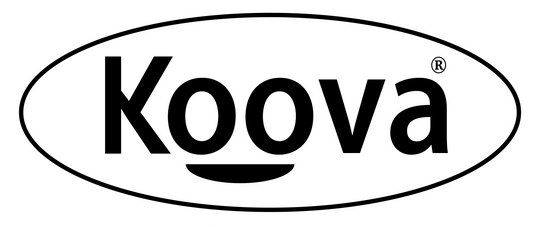Frequently Asked Questions
1. Why is sustainable organization important?
2. How can I start implementing sustainable practices in my home or business?
3. What materials should I consider for sustainable organization?
4. What are some effective storage techniques for sustainable organization?
5. How can I maintain my sustainable organization efforts?
In today’s eco-conscious world, sustainable organization practices are more important than ever. Not only do these practices help maintain a clean and orderly environment, but they also reduce our carbon footprint. Whether you're an individual looking to organize your home or a business striving for eco-friendly operations, understanding sustainable methods is key. Let’s dive into effective strategies that will transform your space while promoting sustainability.
Why Sustainable Organization Matters
Implementing sustainable organization practices goes beyond just tidying up. It fosters a mindset of responsibility towards the environment, helping us make better choices that benefit both our space and the planet. Here are a few reasons why sustainable organization matters:
- Environmental Impact: Sustainable practices diminish waste and encourage recycling, which directly impacts the environment.
- Efficiency: Organized spaces lead to greater efficiency, making it easier to find items and reducing time spent looking for lost goods.
- Health Benefits: A clean and organized environment improves mental clarity and reduces stress.
- Community Responsibility: Encouraging sustainability sets an example for others, promoting a culture of accountability.
Getting Started with Sustainable Practices
Beginning your journey toward sustainable organization can seem daunting. However, with a few simple strategies, you can create a functional and eco-friendly space. Here’s how to get started:
Evaluate Your Current Organization
Before diving into changes, evaluate your existing organization system. Ask yourself the following questions:
- What items do I truly need?
- Which things can I donate, recycle, or throw away?
- Am I using energy-efficient storage solutions?
By answering these questions, you'll gain insight into what it truly takes to create an organized and sustainable environment.
Choose Sustainable Materials
When selecting supplies for your organization system, opt for sustainable materials. This can include:
- Bamboo: A rapidly renewable resource, bamboo is durable and looks great in any space.
- Recycled plastics: Products made from recycled materials can significantly reduce waste.
- Metal: Long-lasting materials like metal can be recycled, making them an eco-friendly choice.
These materials not only serve their purpose but also contribute positively to the environment.
Efficient Storage Techniques
Next, let’s explore efficient storage techniques that can help you utilize your space effectively while promoting sustainability.
Maximize Vertical Space
Utilizing vertical space is one of the most efficient ways to organize. Installing heavy duty shelving brackets allows you to create storage that maximizes height without taking up valuable floor space. Here are some tips:
- Add floating shelves in areas like kitchens, bathrooms, or offices to store items efficiently.
- Use wall-mounted organizers to keep tools or sports equipment off the ground.
- Organize books or decorative items on high shelves to clear surfaces.
Heavy duty shelving brackets are particularly beneficial in this context, providing the strength necessary to hold heavier items while contributing to an orderly space.
Use Multi-Functional Furniture
Furniture that serves multiple purposes can help reduce clutter while being sustainable. Consider:
- Storage Ottomans: These can be used for seating and storing items.
- Bookshelves with Desk Space: Combine your workspace seamlessly with storage.
This strategy not only saves space but also lessens the demand for additional furniture, ultimately lowering your environmental impact.
Creating an Eco-Friendly Filing System
Papers and documents tend to pile up quickly, creating chaos and clutter. Transitioning to a digital filing system can significantly reduce waste. Here’s how:
- Go Paperless: Digitizing documents not only saves space but also reduces paper waste.
- Use a Cloud-Based System: Store files on the cloud to access them from anywhere.
- Organize Files by Category: Set up folders on your computer to mirror your traditional filing system.
This method encourages better organization while also contributing to sustainability by minimizing paper usage.
Maintenance is Key
Establishing a sustainable organization system is a continuous process. Keeping your space organized requires regular maintenance. Consider these strategies to stay on track:
Regular Decluttering
Sustainability is all about reducing waste, and one way to do that is by regularly decluttering your space. Set aside time each month to:
- Evaluate the items you own.
- Decide what can be recycled, donated, or thrown away.
- Implement a one-in-one-out policy for new items.
Implement Organizational Routines
Create weekly or monthly routines to maintain organization. Simple practices like sorting your mail, returning items to their designated spaces, or storing seasonal items can help keep your space in order.
Incorporate Green Practices in Your Organization
Integrating green practices into your organization not only aids in sustainability but can also improve your overall organizational efficiency. Here are a few ideas to consider:
- Using Eco-Friendly Labels: Choose biodegradable or recyclable labels for organizing boxes or bins.
- LED Lighting: Opt for energy-efficient lighting solutions in storage spaces.
- Natural Cleaning Products: Use environmentally friendly products to keep your organized space clean.
Every small step you take contributes to a larger movement toward sustainability in our daily lives.
Benefits of Sustainable Organization
Adopting sustainable organization methods not only affects the environment, but it also positively impacts your personal life or business operations. Consider the benefits:
- Enhanced Productivity: An organized space fosters productivity and creativity.
- Financial Savings: Reduces the need to purchase excess storage or cleaning supplies.
- Positive Impact: Contributes to a healthier planet and happier communities.
Your Path Forward: An Eco-Conscious Commitment
Embracing sustainable organization practices can transform your living or working space while promoting a healthier planet. By incorporating strategies such as utilizing heavy duty shelving brackets, choosing sustainable materials, maximizing vertical space, and regular decluttering, you set the stage for a more organized and eco-friendly lifestyle. Remember, every action counts—big or small. With these practices in mind, you can lead the charge toward a future that values sustainability, efficiency, and organization all at once!


